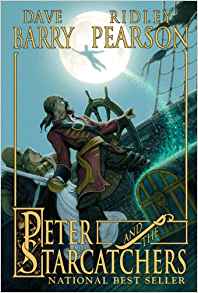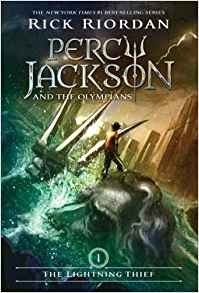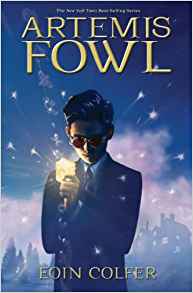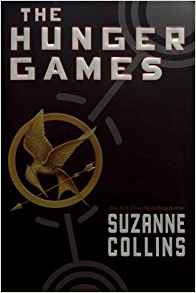While video games and screen-based technologies are in practically every child’s hands these days, there are still many kids who love to read. And even if they don’t, many of them will have summer reading assignments that they need to complete before they return to school in the fall. The team at LearningWorks for Kids suggests helping kids find books that they love but also to select books that may help them with their problem-solving and executive-functioning skills.
Recent studies of children’s choices of books suggest that their favorite types of books include mysteries, detective, and adventure stories. These types of books share a common theme of overcoming obstacles, problem solving, and the need to adapt and adjust, exactly the skills we describe as executive functions. Not only are these books typically more exciting than traditional literature for kids, but they are also more likely to engage kids who have attention and learning issues due to their high level of stimulation.
Here are five book series we suggest for summertime reading that will not only be fun for your kids but also give them a chance to learn more about how executive-functioning and problem-solving skills can be applied in the real world.
 Book Title: Magic Treehouse: Dinosaurs Before Dark
Book Title: Magic Treehouse: Dinosaurs Before Dark
Author: Mary Pope Osborne
Book Type: First in a series of 28 as of March, 2003
Genre: Action & Adventure
Recommended Age Group: 6-9
Also Available as: Audiobook, E-book, Whispersync
Thinking Skills Used: Task persistence, metacognition, and planning
Book Summary: From Amazon, “Where did the tree house come from?
Before Jack and Annie can find out, the mysterious tree house whisks them to the prehistoric past. Now they have to figure out how to get home. Can they do it before dark…or will they become a dinosaur’s dinner?”
From Dr. K, In these adventure books, the characters are taken to all types of far off, magical, and exotic places. Young readers will love how they bravely, face dangerous challenges and are able to beat back the bad guys in innovative ways . While the stories may be a bit redundant for parents, they are engaging for children. Helping them to problem-solve, plan, and think flexibly.
Talking Points: Did they ever get stuck or were the main characters in danger and how did they escape?
Were there any “bad guys” and what did they do?
What did you like about the “bad guys” and how would you help them to become better?
How did the characters in the book work together to solve problems?
 Book Title: Peter and the Starcatchers
Book Title: Peter and the Starcatchers
Author: Ridley Pearson; Dave Berry
Book Type: First in a series of 4 as of January, 2018
Genre: Fairy Tales, Fantasy
Recommended Age Group: 10 and up
Also Available as: Audiobook, E-book, Whispersync
Thinking Skills Used: Planning, time-management, metacognition, and flexibility
Book Summary: From Amazon, “A fast-paced, impossible-to-put-down adventure awaits as the young orphan Peter and his mates are dispatched to an island ruled by the evil King Zarboff. They set sail aboard the Never Land, a ship carrying a precious and mysterious trunk inits cargo hold, and the journey quickly becomes fraught with excitement and danger.”
From Dr. K, For adults and kids who love Peter Pan, this is a great series. Peter Pan outsmarted the adults and bad guys in the original story. In these books, he finds himself in a lot more trouble, but develops new relationships with the lost boys and learns to rely upon them. The story of Peter Pan is ageless and relates well to those of us who are older and not exactly ageless. Skills including flexibility, seen in Peter’s incredible problem solving, and working memory, where Peter is able to anticipate the actions of Hook, are highlighted. Peter’s connections with the lost boys also have many important themes about caring for family members and others.
Talking Points: Which character did you like the most in the book and why?
What was the biggest problem that the main character faced and how did he/she handle it?
How did the characters in the book display their friendship and caring with each other?
Were there any “bad guys” and what did they do?
 Book Title: Percy Jackson and the Olympians: The Lightning thief
Book Title: Percy Jackson and the Olympians: The Lightning thief
Author: Rick Riordan
Book Type: First in a series of 5 as of January, 2011
Genre: Action & Adventure, Fantasy
Recommended Age Group: 10-16
Also Available as: Audiobook, E-book, Whispersync
Thinking Skills Used: Executive functioning, social emotional learning, planning, task persistence, metacognition, sustained attention, flexibility, working memory, and metacognition
Book Summary: From Amazon,“Percy Jackson is no ordinary teenager…he’s just learned he’s the son of Poseidon and is accused of stealing Zeus’ lightning bolt – the most powerful weapon ever created! With storm clouds brewing, Percy embarks on an incredible cross-country journey to prove his innocence, recover the bolt and prevent a war amongst the gods that could destroy our world!”
From Dr. K, Rick Riordan has written many books that kids love. This is his most popular series which also has movies and graphic novels to generate even more enthusiasm for reading. His latest books, The Lost Hero (The Heroes of Olympus – Book 1) , Trials of Apollo, The Hidden Oracle, Magnus Chase & the Gods of Asgard (Book 1), and The Sword of Summer, continue to be best sellers and encourage the learning of historical Greek and Norse myths. Even reluctant readers can’t stop at one book, so be prepared to spend some money. However, if you want to save on costs, the books are available at libraries or in the used market.
Talking Points: Are there any skills or abilities that the main character used in the book that you would like to improve in your real life?
How did the characters in the book work together to solve problems?
 Book Title: Artemis Fowl
Book Title: Artemis Fowl
Author: Eoin Colfer
Book Type: First in a series of 8 as of January 2014
Genre: Science Fiction, Fantasy, Mystery
Recommended Age Group: 10-16
Also Available as: Audiobook, E-book, Whispersync
Thinking Skills Used: Sustained attention, task persistence, planning, and flexibility
Book Summary: From Amazon, “Twelve-year-old Artemis Fowl is a millionaire, a genius-and, above all, a criminal mastermind. But even Artemis doesn’t know what he’s taken on when he kidnaps a fairy, Captain Holly Short of the LEPrecon Unit. These aren’t the fairies of bedtime stories; these fairies are armed and dangerous.
Artemis thinks he has them right where he wants them but then they stop playing by the rules.”
From Dr. K, This series is intriguing because the main character, Artemis Fowl, is heroic, but does not always follow rules. The stories combine Artemis’ cunning intellect with a bit of fantasy. There is enough intrigue and complex plot lines to engage young and teenage readers. I have read most of the series and also enjoyed a graphic novel version of one of the books.
Talking Points: What can you learn about learning from your mistakes from this book?
What did you like about the “bad guys” and how would you help them to become better?
 Book Title: The Hunger Games
Book Title: The Hunger Games
Author: Suzanne Collins
Book Type: First in a series of 3 as of August 2010
Genre: Science Fiction
Recommended Age Group: 12 and up
Also Available as: Audiobook, E-book, Whispersync
Thinking Skills Used: Social emotional learning, planning, and organization
Book Summary: From Amazon, “In the ruins of a place once known as North America lies the nation of Panem, a shining Capitol surrounded by twelve outlying districts. Long ago the districts waged war on the Capitol and were defeated. As part of the surrender terms, each district agreed to send one boy and one girl to appear in an annual televised event called, “The Hunger Games,” a fight to the death on live TV. Sixteen-year-old Katniss Everdeen, who lives alone with her mother and younger sister, regards it as a death sentence when she is forced to represent her district in the Games. The terrain, rules, and level of audience participation may change but one thing is constant: kill or be killed.”
From Dr. K, Hunger Games is one of the best young adult series. But, I caution parents to make sure that their child is old enough for the violence, politics, and power plays portrayed in the stories. With that being said, it is popular for good reason. It is well written, there are real heros to root for, and the story never gets boring. However, I would be careful, if you have an anxious child. It may be a series for them to read when they’re older. Overall, it is a great series for reluctant readers and they may benefit from watching the movies first.
Talking Points: What did you learn from reading the book that you might be able to teach someone else?
What can you learn about problem solving from this book?
Featured image: Flickr user thelittleone417




